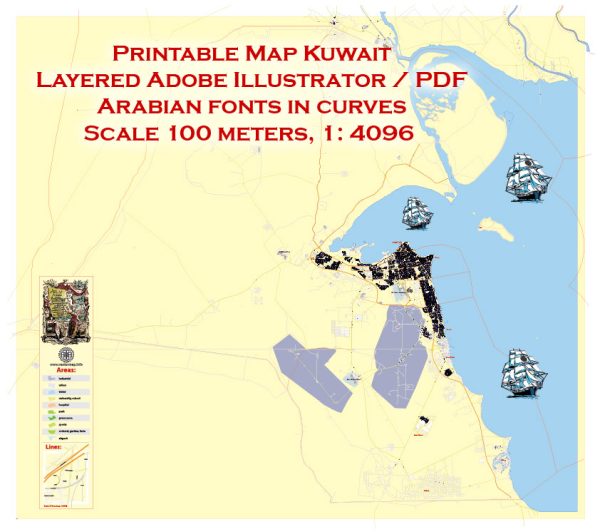Kuwait’s political history is marked by its evolution from a traditional tribal society to a modern nation-state. Here’s a brief overview of Kuwait’s political history:
- Early History and Tribal Societies (18th Century – Early 20th Century): Before the emergence of a centralized political system, the region now known as Kuwait was inhabited by various Bedouin tribes engaged in trade, pearl diving, and fishing. The area served as a commercial and maritime hub due to its strategic location along the Persian Gulf.
- Ottoman and British Influence (Late 19th Century – Early 20th Century): Kuwait was part of the Ottoman Empire until the late 19th century when it became a British protectorate in 1899. The British recognized Kuwait as a separate entity, and this period saw the emergence of the Al Sabah family as the ruling dynasty.
- Independence (1961): On June 19, 1961, Kuwait gained full independence from the United Kingdom, becoming the State of Kuwait. The same year, it became a member of the United Nations.
- Constitutional Monarchy: Kuwait adopted a constitutional monarchy in 1962. The Constitution established a National Assembly (Majlis al-Umma) consisting of elected and appointed members, and it granted certain powers to this legislative body. The Emir (Amir) of Kuwait retained significant authority, but the National Assembly played a role in the political process.
- Gulf War (1990-1991): In 1990, Iraq invaded Kuwait, leading to the Gulf War. The international coalition, led by the United States, liberated Kuwait in 1991, and the Emir was restored to power.
- Post-Gulf War Political Reforms: In the aftermath of the Gulf War, there was a push for greater political reforms in Kuwait. The National Assembly gained more powers, and the government became more accountable to the elected representatives.
- Political Developments: Kuwait has experienced periods of political turmoil, with tensions between the government and parliament, leading to the dissolution of the National Assembly on several occasions. However, Kuwait has maintained a relatively open political system with active political participation and a free press.
- Recent Political Challenges: In recent years, Kuwait has faced challenges related to political divisions, economic reforms, and security concerns, especially in the context of regional instability. These issues have been exacerbated by the decline in oil prices and a more assertive role in the region.
- Role in the Gulf Region: Kuwait plays an important diplomatic role in the Gulf region and has been involved in efforts to mediate regional conflicts and disputes, such as the Gulf Cooperation Council (GCC) crisis.
- Current Political Landscape: As of my last knowledge update in January 2022, Kuwait’s political landscape featured a parliamentary system where the Emir held a significant role, and the National Assembly remained a key institution in the country’s governance. However, political developments may have occurred since then.
Please note that Kuwait’s political landscape can be dynamic, and it’s advisable to consult more recent sources for the latest developments and changes in the country’s political history and structure.


 Author: Kirill Shrayber, Ph.D. FRGS
Author: Kirill Shrayber, Ph.D. FRGS